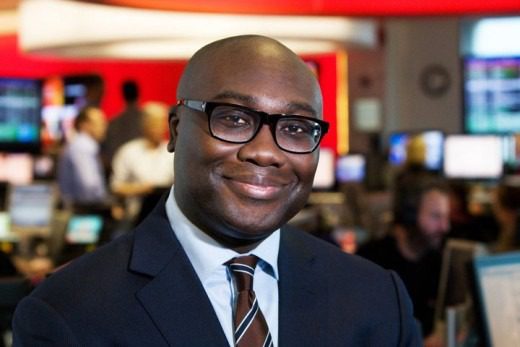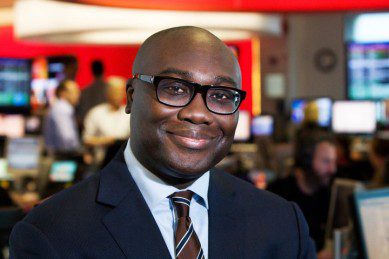Global Issues
Time to Speak Out Against Untimely Deaths in Nigeria -By Ikechukwu Odigbo


Late Komla Dumor
Everyday we lose friends, family members and colleagues to one accident or the other. The story is essentially the same: people trapped inside collapsing buildings; deathS by fire caused by gas or kerosene explosions; car accidents due to over-speeding or reckless driving. In the end breadwinners are lost; huge human potentials are wasted; while grief and suffering are spread across board for the living.
Today, Nigeria’s life-expectancy has continued to drop and now stands at only 49 years. There are many causes of untimely death, but it appears to me that we are made more vulnerable by our world-view which seems to promote some sort of fatalism. According to this world view, God knows whether we would live or die; and from this, whatever we do does not matter, since God will always approve or disapprove what happens to us.
This fad is fed into the minds of Nigerians by the cultural assortment of language, music, films, and especially by religion. For instance, a common name among the Igbos is Chidera, which means ‘what God has written he has written’. I remember a popular song in the Nigerian highlife music genre which harps endlessly on ‘akalaka’, meaning destiny. In the Igbo worldview, even before we come into the world, our destinies have been written and there is nothing we can do to change these. This includes, of course, that some people are condemned to die young, and that they cannot prevent it.
This falsehood is even more obvious in religion. Sermons at dead people’s funerals revolve around the same erroneous belief that people can only die because it is their time; and that it is their time because God has said so. Whether we are shot by armed robbers or die of preventable motor accidents, it has been willed and ordained by God. This world-view explains why very little attention is paid to behaviour-change among the people.
But this is precisely why this world-view is wrong. It defines our understanding of ourselves in relation to God without basing those convictions on knowledge or evidence. In a society like Nigeria where truth about reality is audaciously peddled by half-educated pastors, illiterate musicians and people on the streets, it is not surprising that our life is thus tragic and miserable. The gory tales of preventable deaths show, in fact, the extent to which we have imbibed these falsehoods.
The good-news is that an alternative narrative is possible and people should know that they have considerable control over what happens to them. The best way to prove this is to compare our experiences with the experiences of people who live in societies where this kind of world-view is not the norm. Where safety standards are high and people are meant to act within approved guidelines, accidental deaths are low. Then when you examine the statistics of ‘accidental deaths’, you will see a direct correlation with those accident-prevention measures.
But even if we discountenance external controls, people’s beliefs and world-views play strong roles in the way they live. If we take it that ‘what is written is written’, we might not be willing to make any adjustments in the way we live. But it might pay to look at our life from the twin lenses of autonomy and possibility, rather than from the prism of fatalism.
Autonomy refers to the capacity of free decision in the human person and this is the seat of duty and responsibility. People take decisions and know that it will impact on them, and that in fact they will face the consequences. It is such a pity that in Nigeria, more often than not, people take decisions or rather fail to take decisions and expect other people or God to take the responsibility. Apparently, the death of those who die of drunken driving or over-speeding are blamed on God.
On the other hand, one might choose to interpret oneself, as Martin Heidegger would suggest, as ‘a bundle of possibilities’. This makes one to live within the horizon of infinite possibilities. To see oneself in the frame of destiny means, in fact, that one’s life is beyond him/herself: whatever one does, ‘what will be will be’. There are many reasons to believe this as misleading.
To see oneself as a bundle of possibilities is to live in full consciousness of choices, meaning that it is within one’s power to alter the compass of his life and move in a different direction. For instance choosing to over-speed should be seen as a choice and with it could come death. It is within possibility that we embark on a journey and return from it safely. In this sense then, possibility is one of the greatest features of man in distinction from other animals.
In Nigeria today, thousands are dying from preventable causes, whether of infections, water-contamination, motor-accidents, armed robbery, poverty, etc. All these causes are within the powers of man to curb, if not eliminate. Whether we die young or live long is a kind of choice.
It is good for people to know this and it is up to them to choose to believe it by changing their mind-set or not to believe it by living like before. This has nothing at all to do with God. It amounts to a disservice to the benevolent God to believe that He is so capricious to forcibly take back our life even before we could make real use of it. No, this is not the true picture of the God we worship.
Ikechukwu Odigbo is a doctoral researcher in Philosophy at the University of Essex, UK.

















